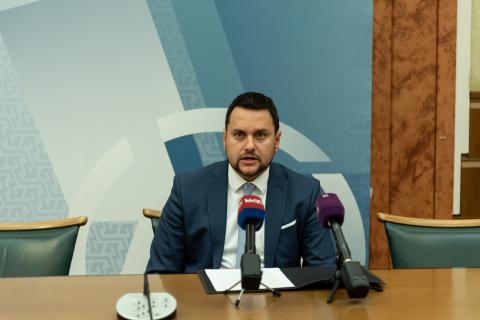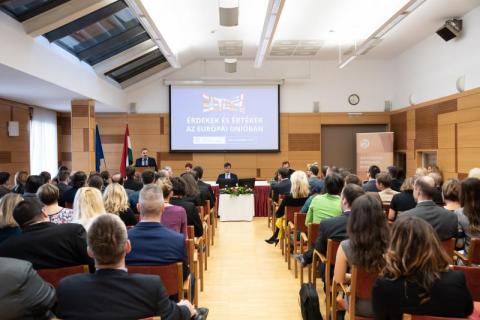Részletes keresés
The international conference has begun at the Hungarian Academy of Justice, with the participation of the Visegrad Four countries and Croatia, where attendees will exchange experiences about the possibilities in judicial digitalization.
According to the justice scoreboard, the Hungarian judiciary is at the frontline of Europe: the results in the area of digitalisation are excellent, the length of administrative court cases is the fourth shortest, and the length of civil cases is the fifth shortest in Hungary – highlighted dr Tünde Handó, President of the National Office for the Judiciary (NOJ) at the press conference held before the general meeting of judges at the Regional Court of Szeged.
The National Judicial Council (NJC) made a unanimous decision, supporting dr. György Senyei's nomination as president of the National Office for the Judiciary – announced NJC spokesman dr. Viktor Vadász at a press conference held at the NOJ. The NJC heard the presidential candidate this morning.
A 3-day training session and lecturer competence development, titled „Interests and values in the European Union” has started for court secretary and newly appointed judge members of the European Law Advisors’ Network (ELAN), and participants of the THEMIS competition on the Hungarian Academy of Justice (MIA).
Az Európai Bizottság és Svájc 2006-ban aláírt kétoldalú megállapodása értelmében Svájc a 2004-ben csatlakozott európai uniós tagországoknak egyszeri, vissza nem térítendő támogatásként 5 éven keresztül összesen 1 milliárd svájci frank hozzájárulást biztosított.



